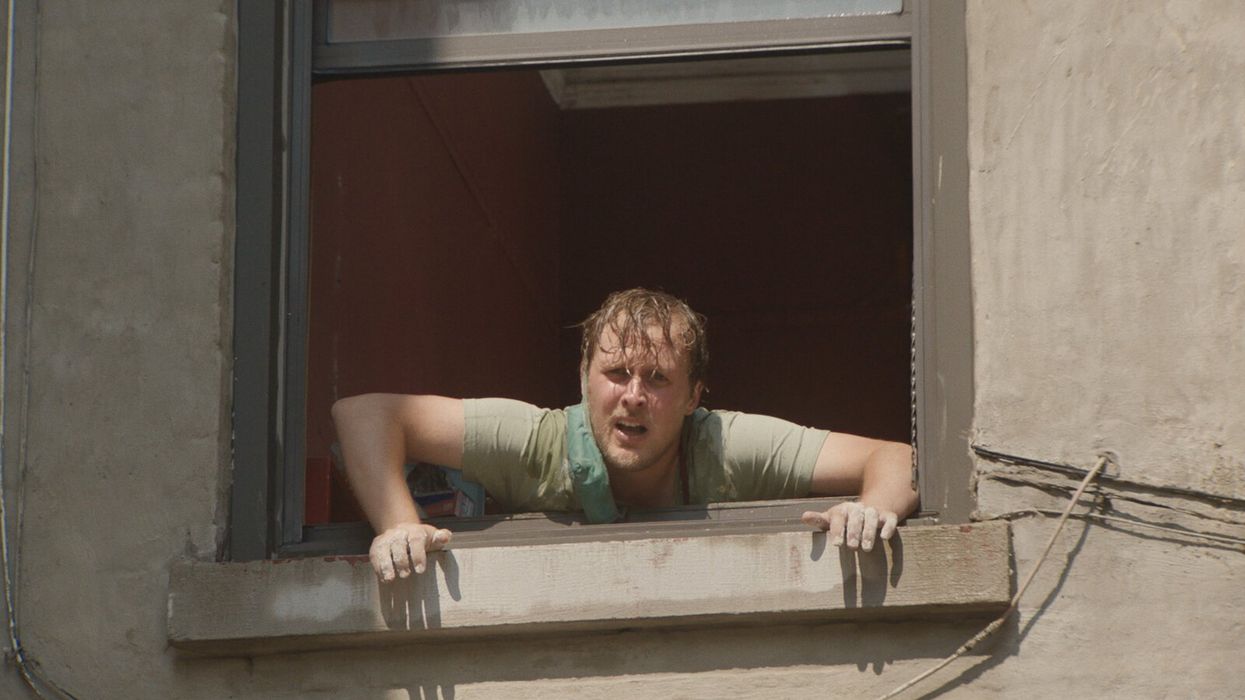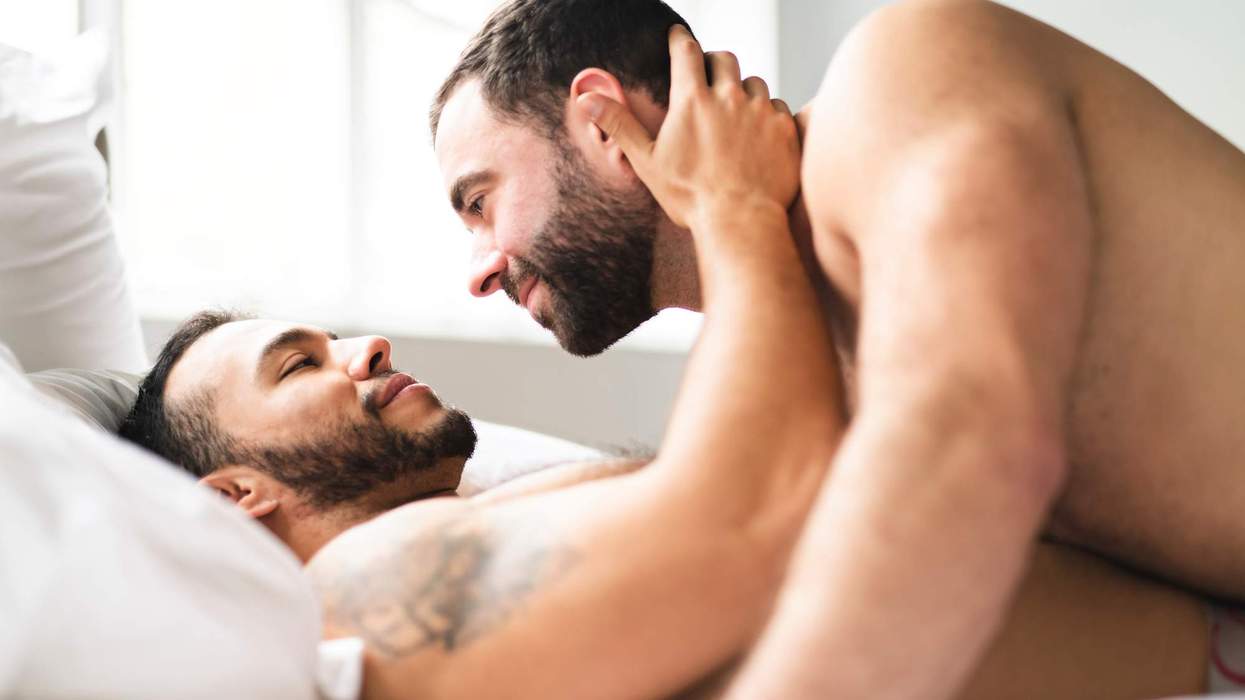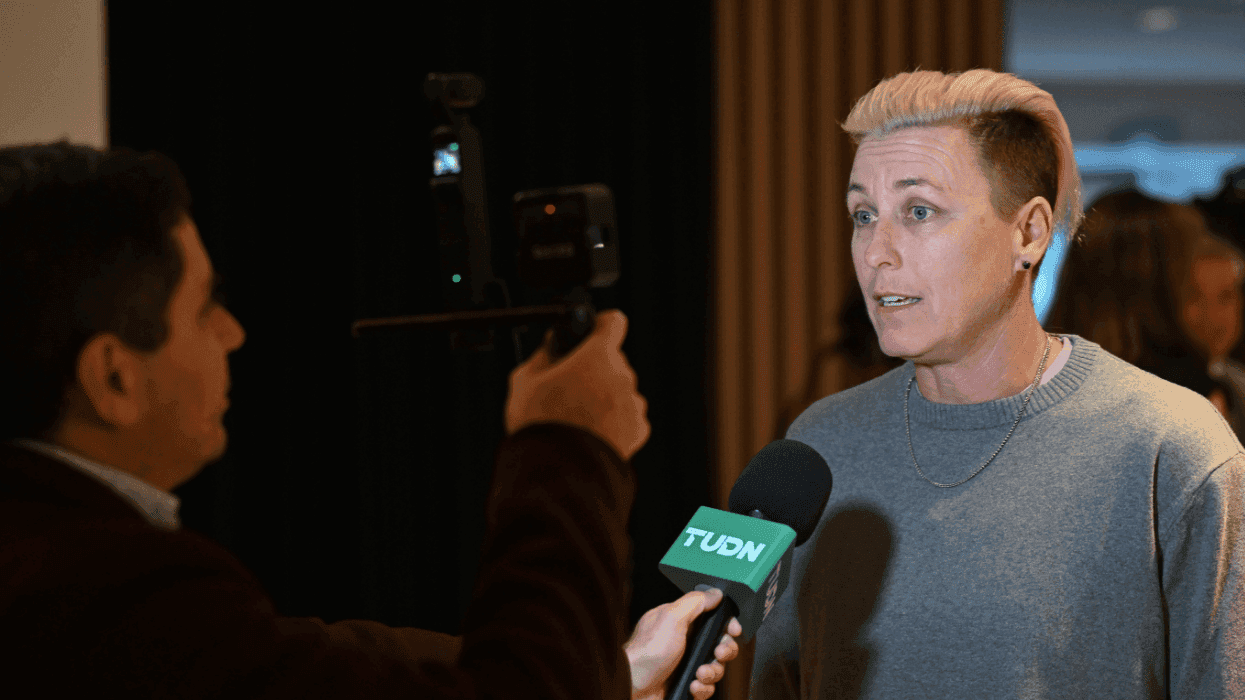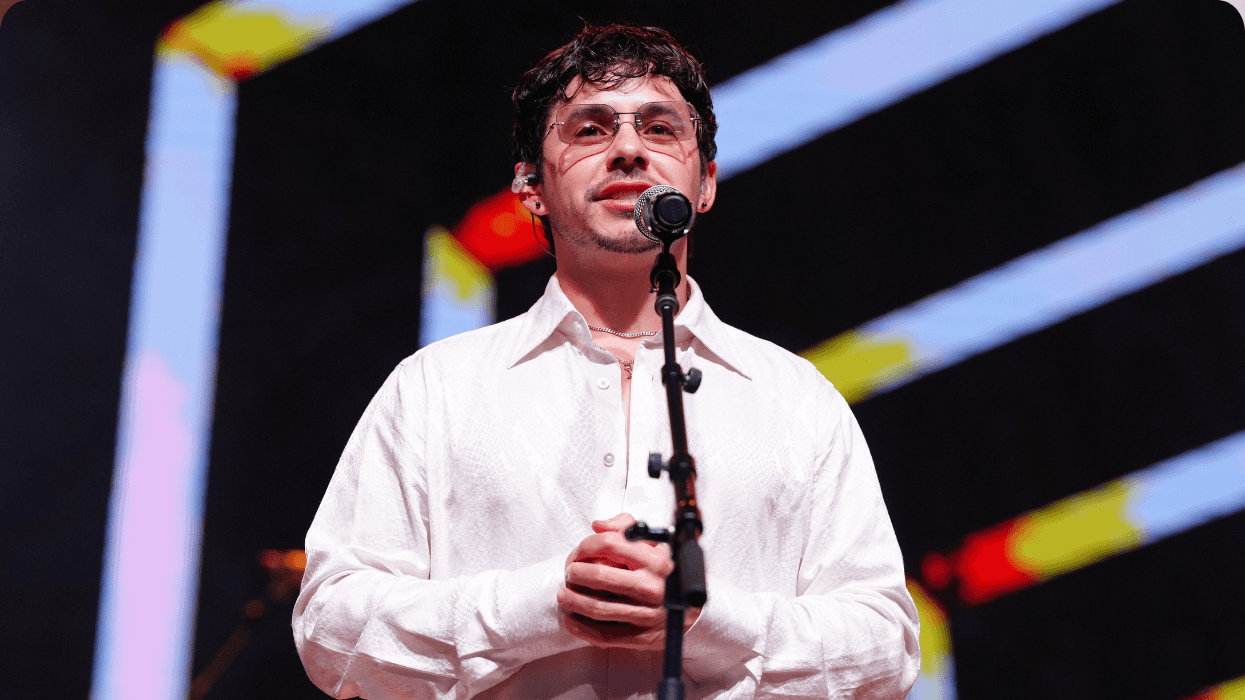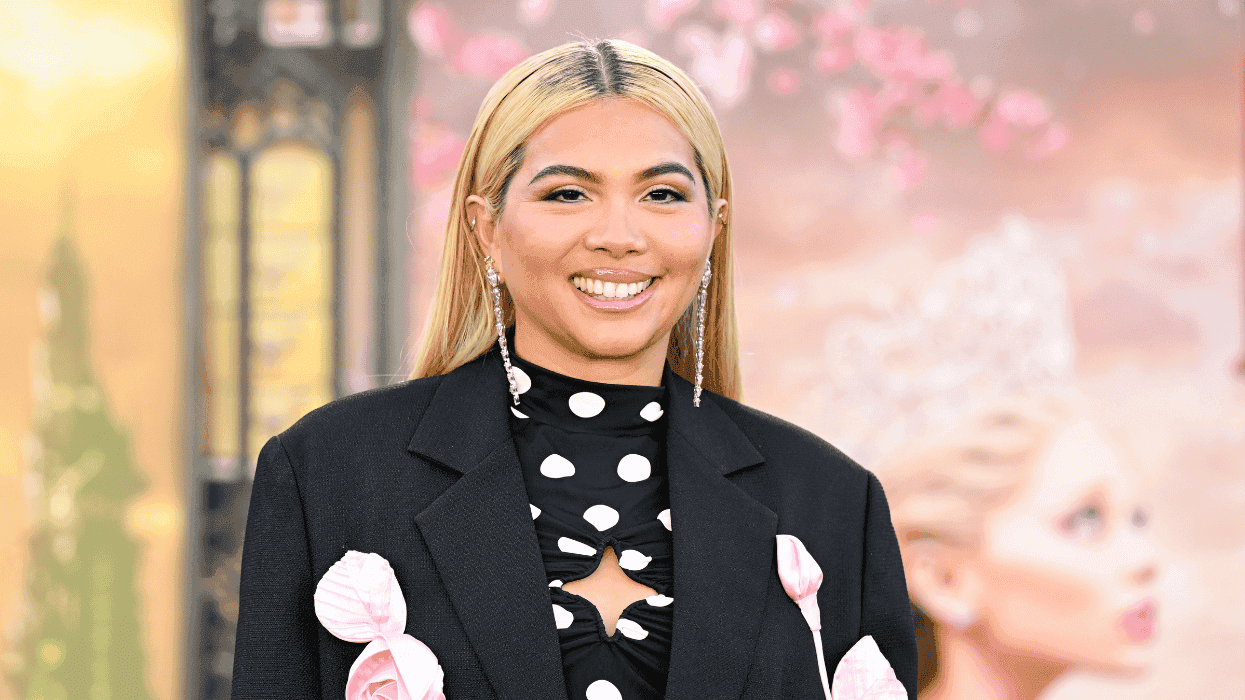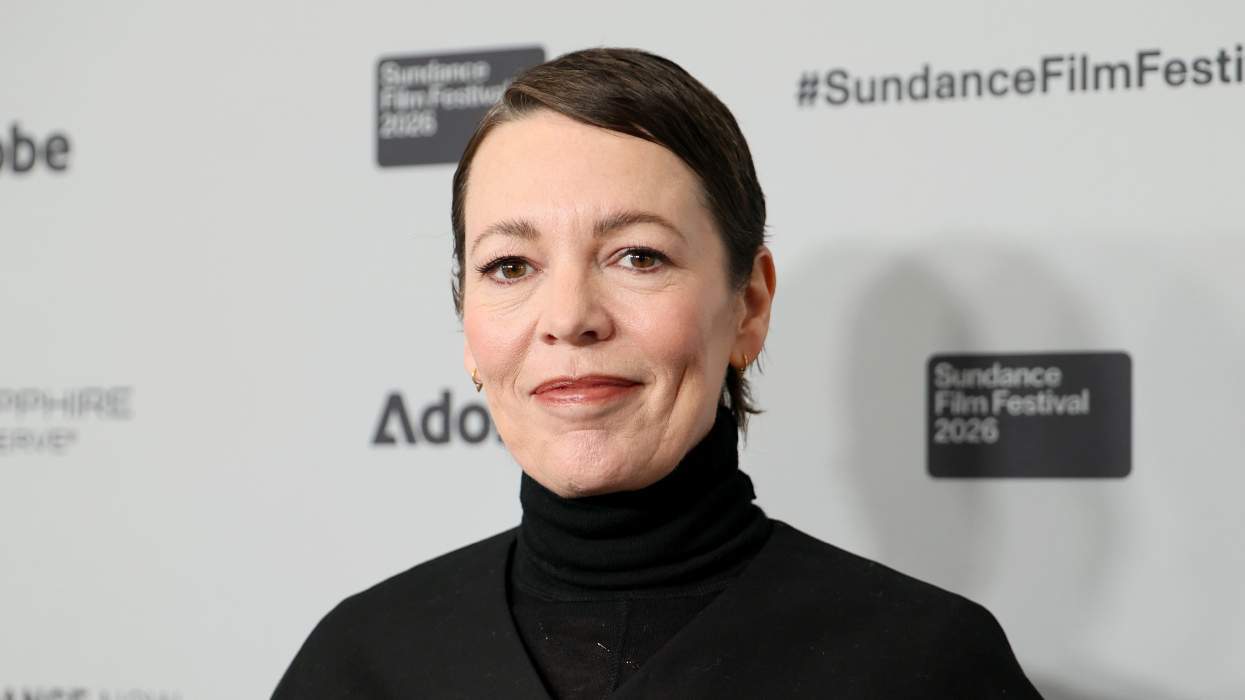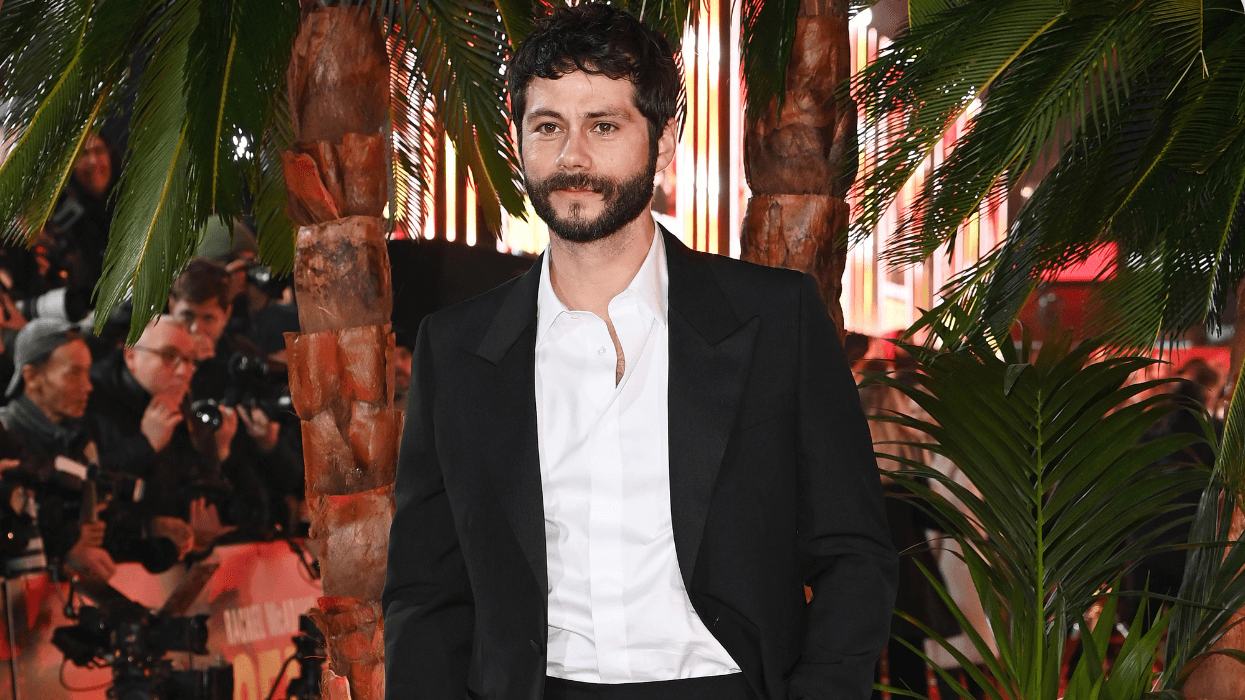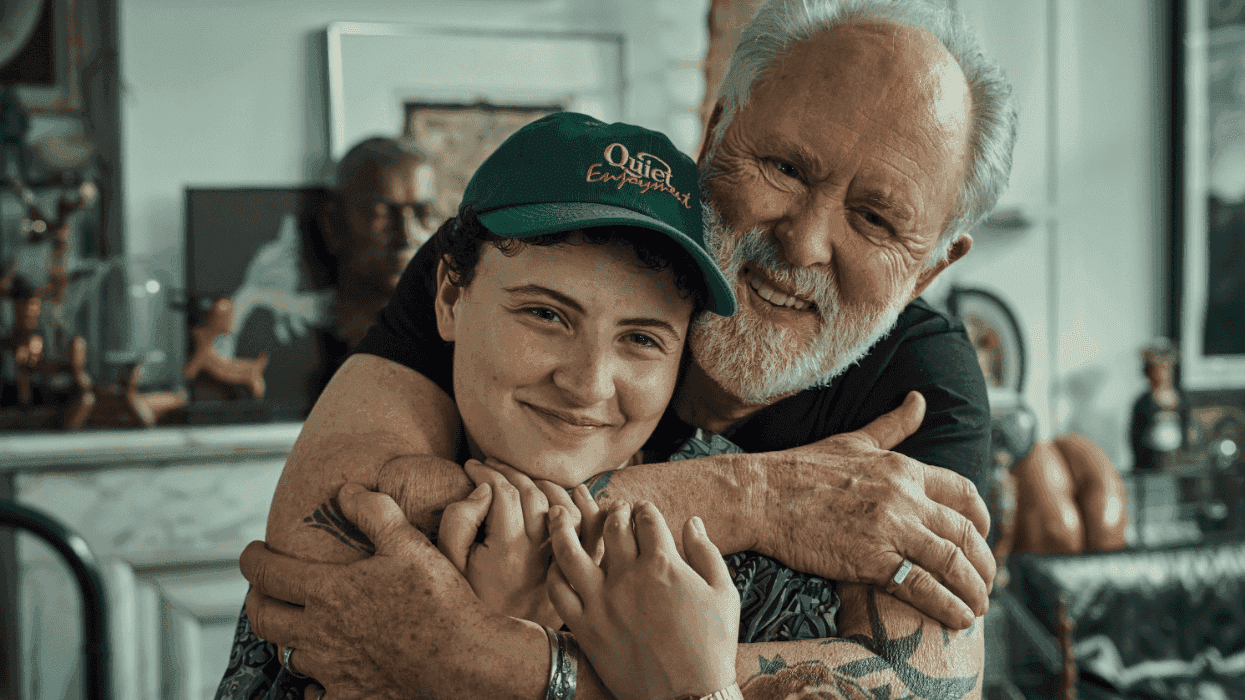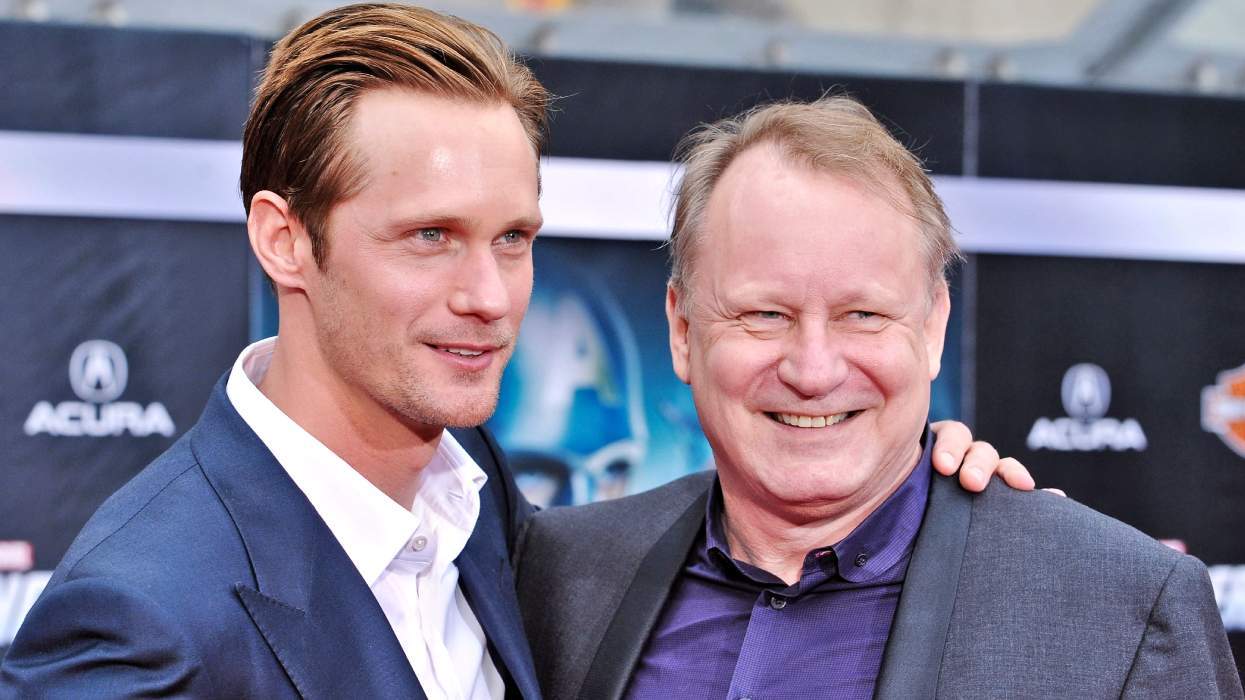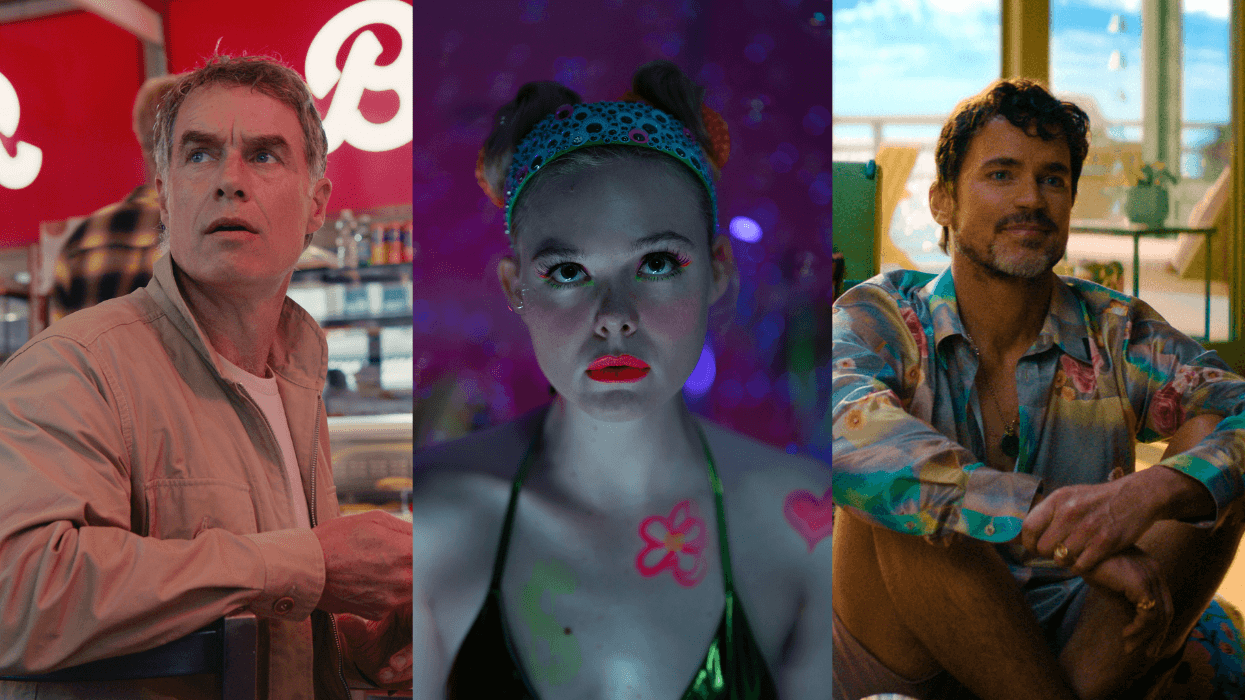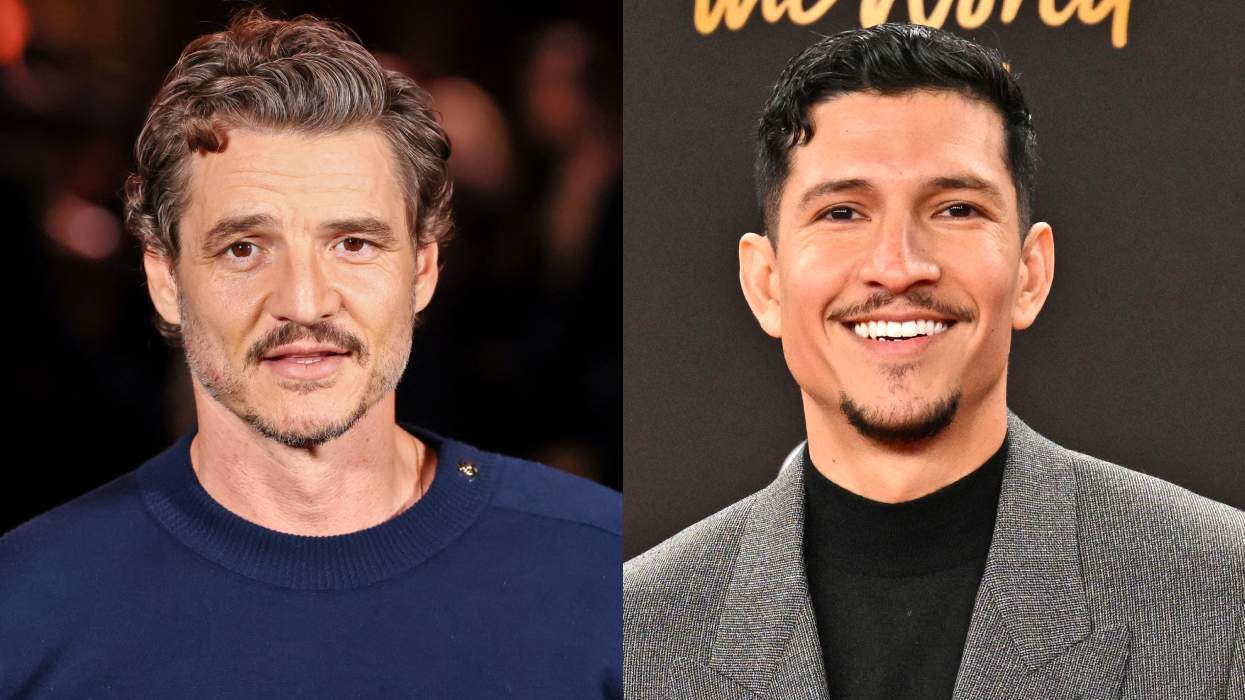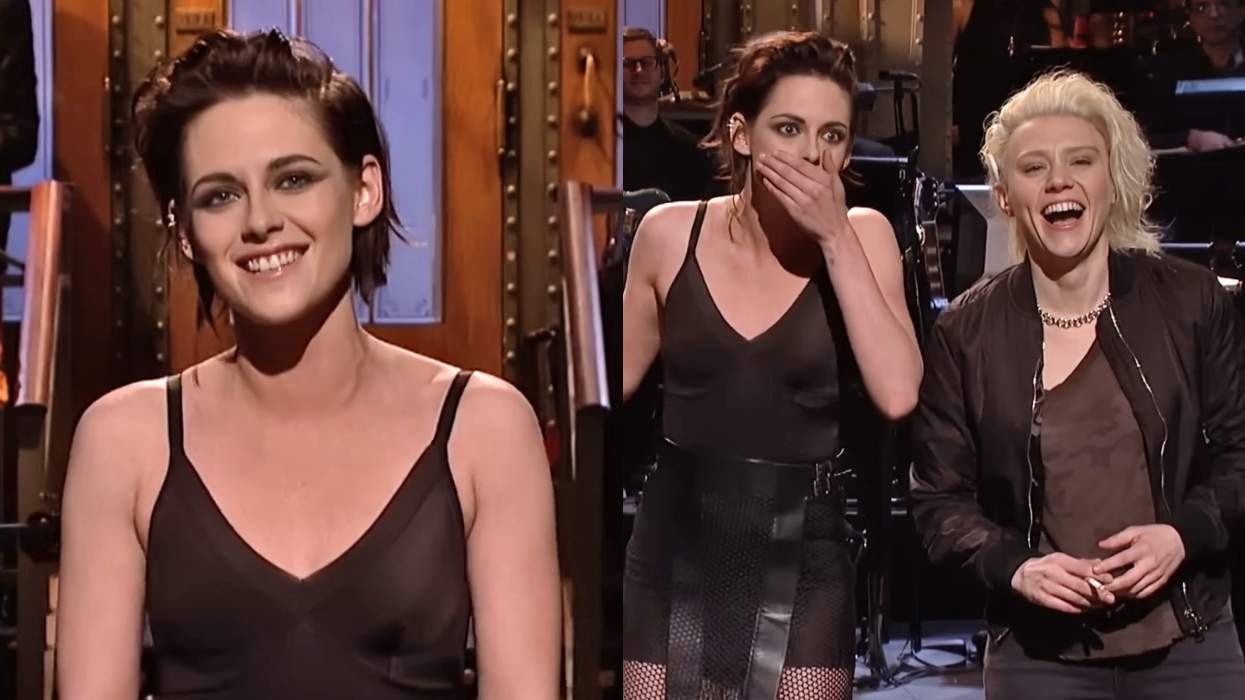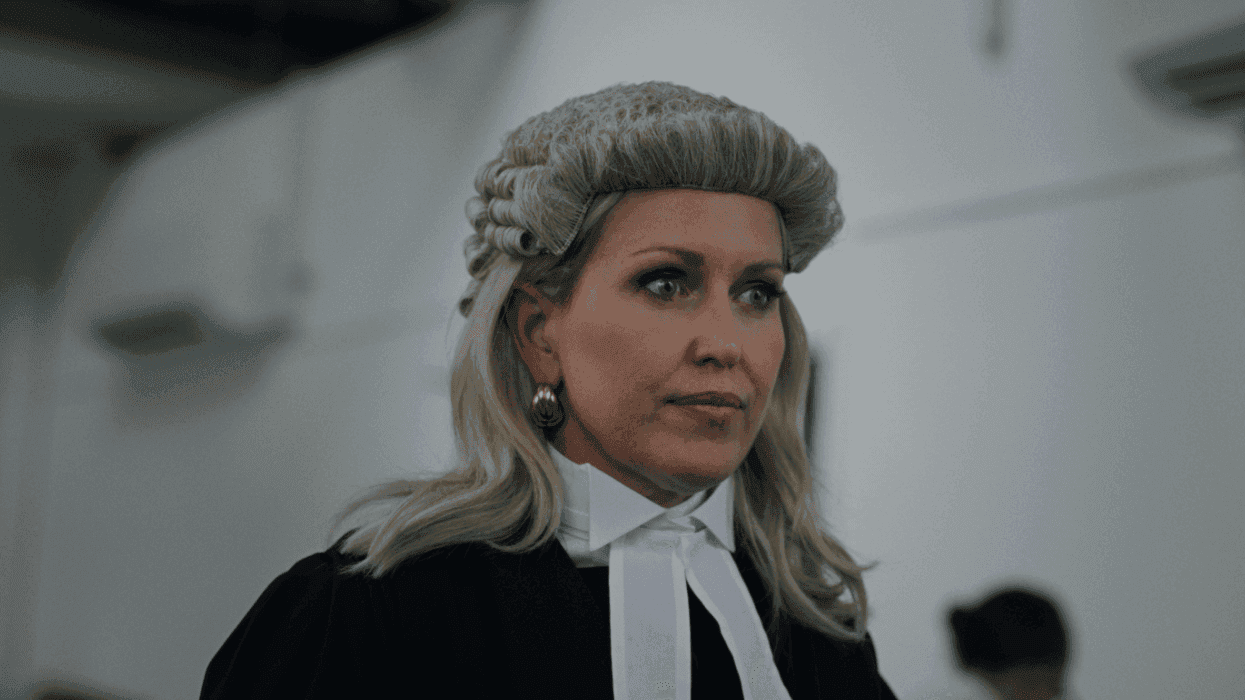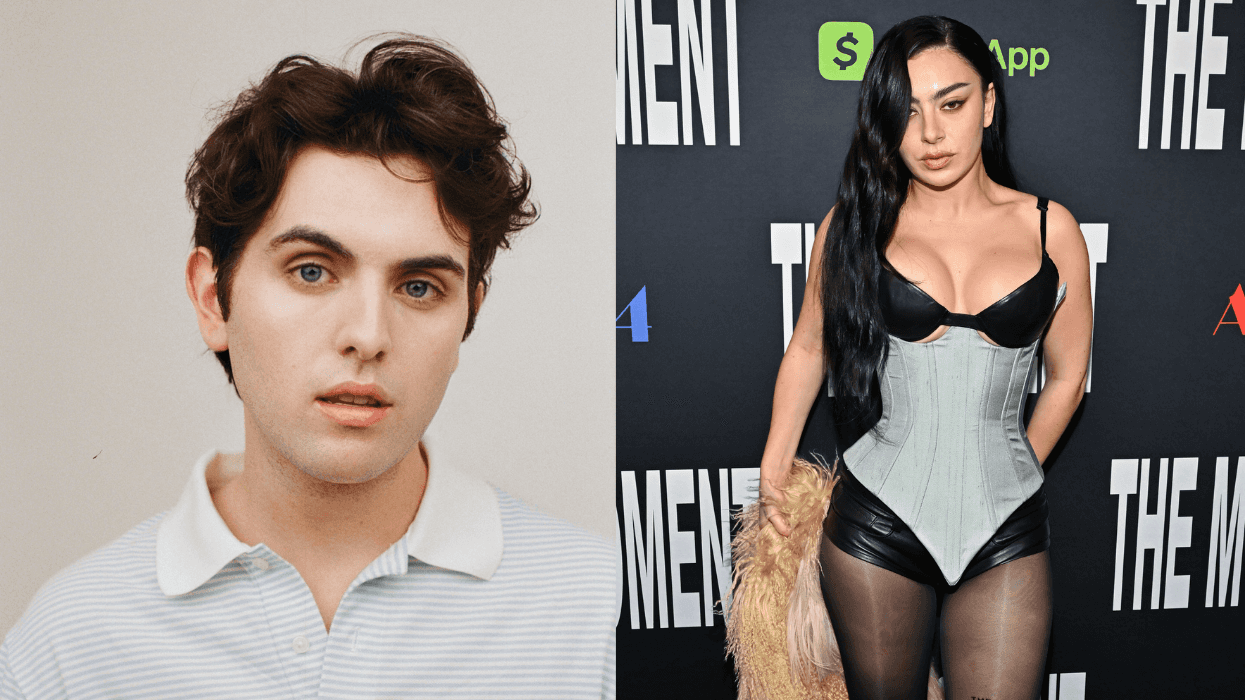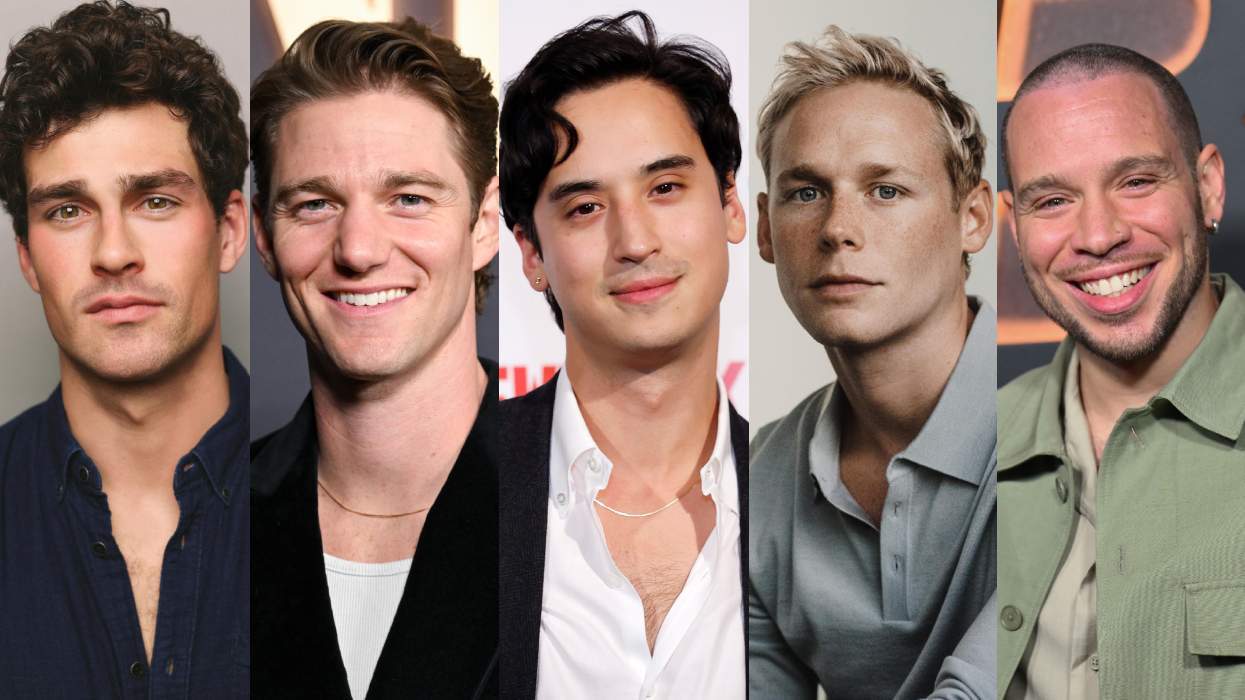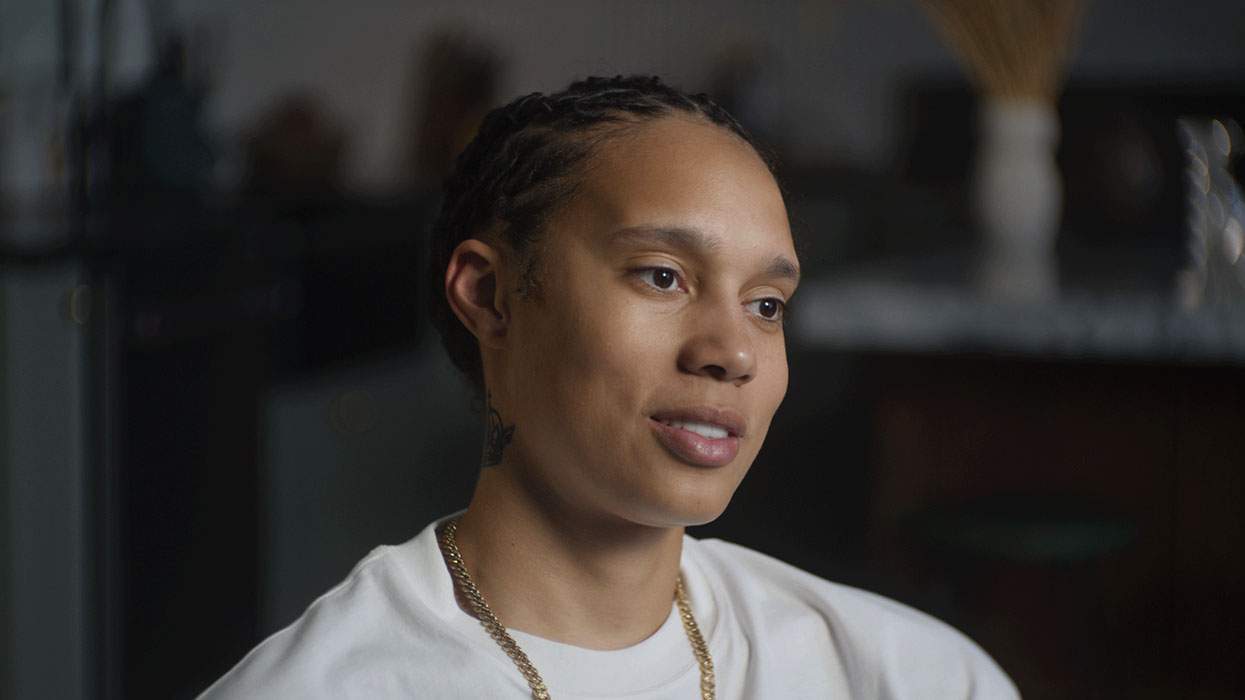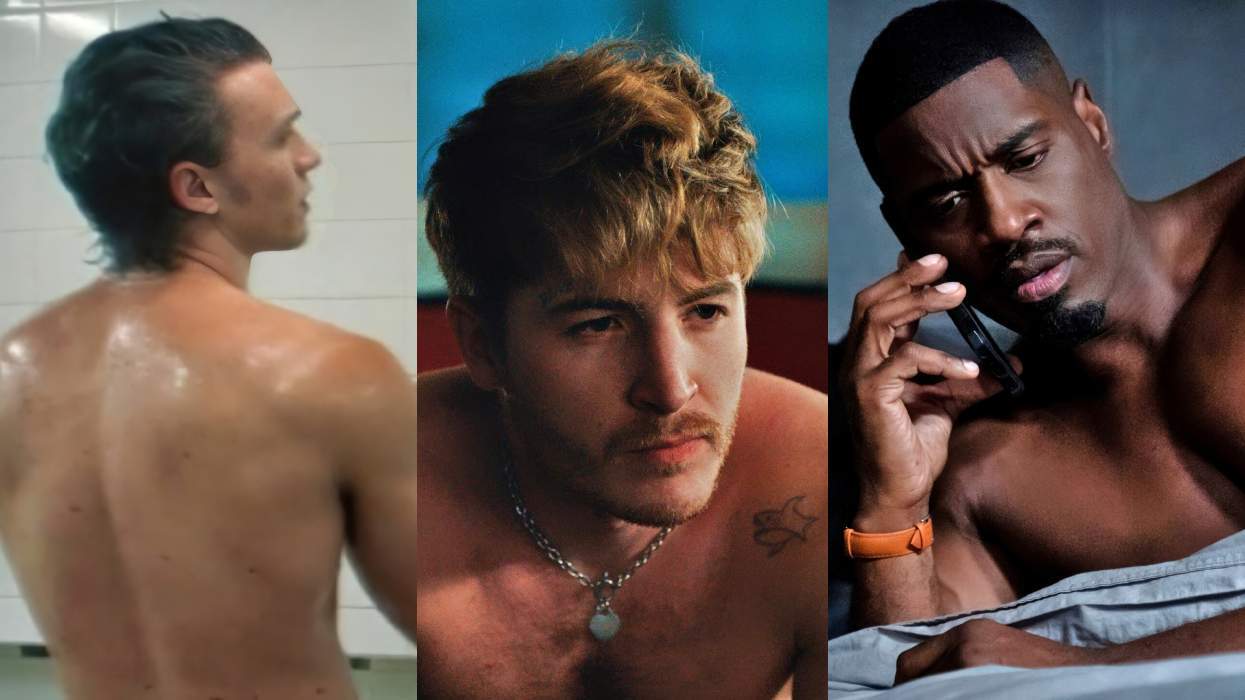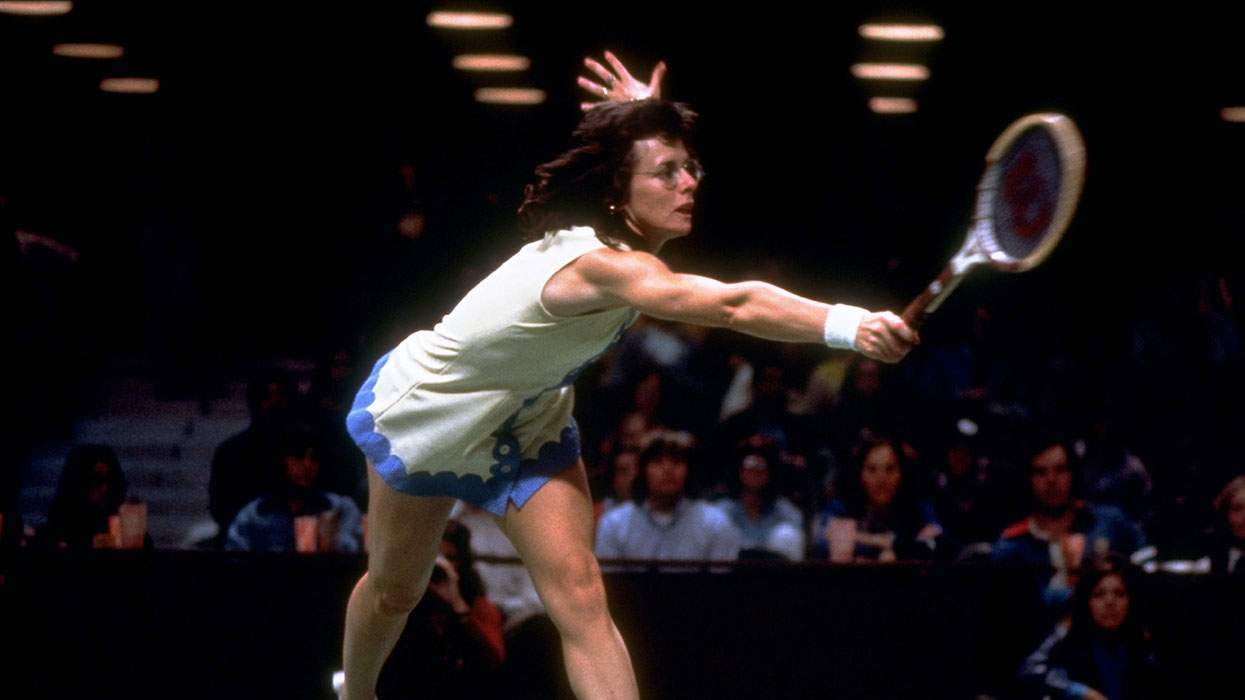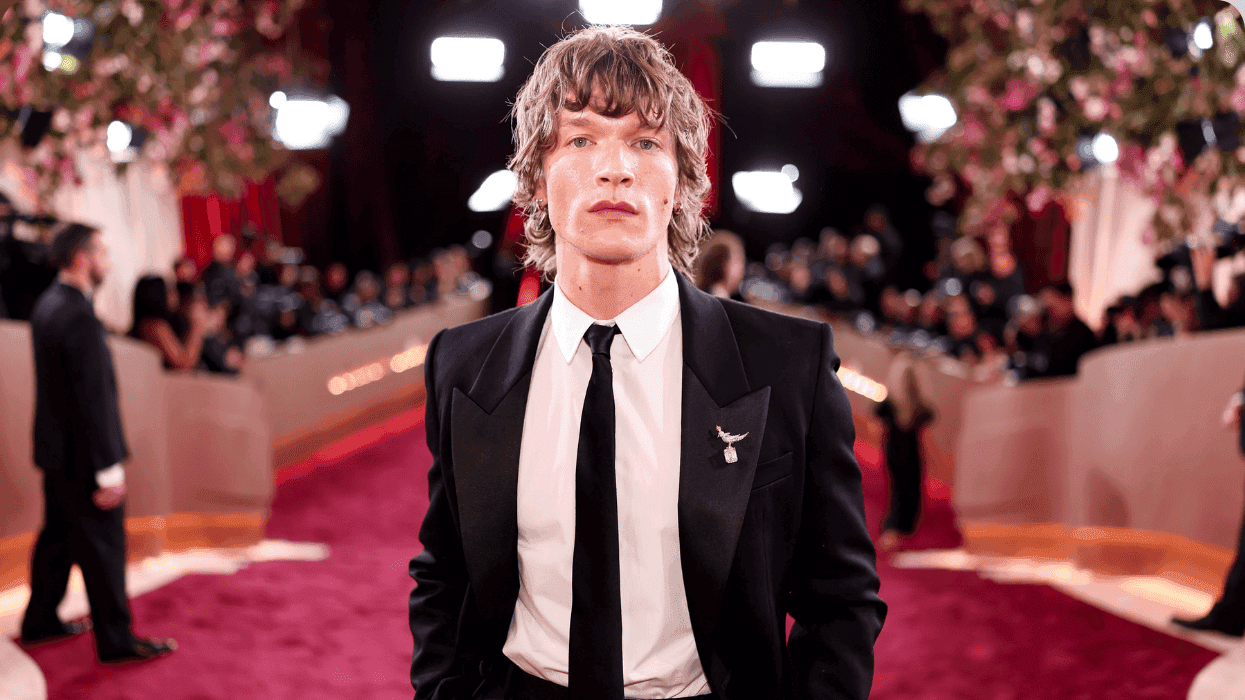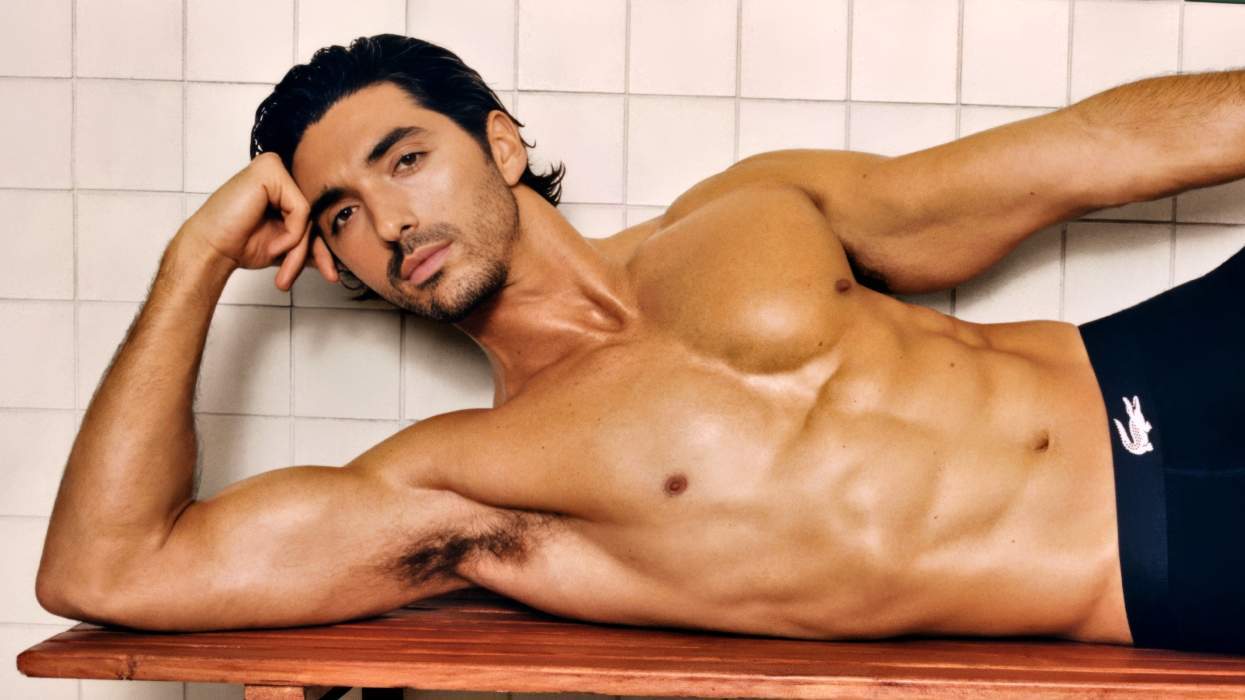If we have to confront the collective trauma that the early days of the global COVID-19 pandemic instilled in all of us, we want to be able to at least cackle about it — and that's where Neon's latest, queer AF comedy drama Stress Positions comes into play.
Directed, co-written, and starring filmmaker Theda Hammel alongside out comedian and actor John Early, the film, which premiered earlier this year during Sundance, is a chaotic look at the lives of two New York City frenemies, Terry (Early) and Karla (Hammel), as they navigate life and love during lockdown.
Terry is going through a messy divorce and trying to maintain his sanity while taking care of his injured nephew Bahlul (Qaher Harhash), who he knows next to nothing about other than the fact he's a model. Karla is in a strained (i.e. failing) relationship with her girlfriend (who made a name for herself by writing a book based on their relationship and Karla's transition), though she may have a thing for a delivery driver who somehow manages to keep showing up in both Terry and Karla's life. As we mentioned before in our Sundance review of the film, Stress Positions also does a hilarious job of turning the mirror on young, upper middle class millennials and their performative, problematic views on politics and identity, which can be seen mostly in how everyone interacts with Bahlul, who is from Morocco.
Out got the chance to speak with Early about starring in the film, his longtime friendship with Hammel, reliving the early days of the pandemic, and more.
Out: So how did Stress Positions come across your lap? Have you and Theda worked together before? How did this partnership come to be and what made you want to say yes to the project and be a part of it?
John Early: Well, it's not like I was choosing between any other feature offers, but Theda very beautifully wrote me a script and sent it to me on my birthday in 2021. I was in the middle of doing a very depressing job that I am very accustomed to in this industry as a comedic performer. I was so moved to see Theda had kind of written this clown archetype that I tend to do, this kind of panicked gay hostess, but she had really deepened it and turned up the pathos of that character more than I typically get to do and contextualize it in something very kind of high-minded, literary, New York-y, and a little more art-y than I get to do without ever sacrificing any of the kind of slapstick and irreverence and grotesqueness. It was many, many things that I love and that she was able to do that because we are old friends.
We met at the Atlantic Acting School in 2009. I was working the front desk there after completing my training and she was doing a summer intensive program there. I immediately felt from some sort of twinkling quality in her eyes that we were kindred spirits and we worked together on plays very earnestly in our early twenties. We've just been really, really good friends ever since. And our friendship is, like lots of friendships, based around processing the world together. She knows me really well. She knows my deepest insecurities. She knows a lot about my history and what I love and what I don't love. And so I think all of that was infused into the script and it was such a no-brainer for me. I was so excited to bring that to Neon who, by their output, but also by conversations I had been lucky enough to have with them, could tell they would get Theda or be excited by Theda in ways that I think a lot of other people would maybe not even perceive her genius. So that's the kind of short version of it.
Terry and Karla are the best frenemies I want to see more of. There's no better pairing for me in TV and movies than the girls and the gays, but often with that pairing, it's very, 'GBF, let's go shopping!' But I feel like Terry and Karla, like I said, they're like frenemies. They lowkey kind of hate each other, but there's a deep love for each other there. So can you talk about just going back and forth with Theda and crafting that dynamic with her and getting make this dynamic duo?
I think Theda and I both understand friendships that were formed in the kind of early Bush era, when we were in college. What's interesting about Terry and Karla is they've both seen each other in states that they're not presenting as now. Terry knew Karla pre-transition and Karla knew Terry when he had some very unsavory, new atheist, overtly Islamophobic political views. So they both kind of have almost a collateral on each other. Terry is performing a much more up to date political correctness than he once was. And Karla being rather Karla, she is being this kind of worldly wise trans woman. They both know what they started as. And so I think is there's something that when they're in the same room, their performances of themselves kind immediately fall apart, especially the way that Karla is able to just barely poke Terry, and then his whole semblance of his identity just crumbles, which I think is best embodied in that moment when I say, "I'm back from drinking!" and then Karla just puts a wine glass right in front of my face and I immediately just get wasted.
Both these characters, in their own ways, have things about them that, on paper, are very unlikeable about them. They're very thorny. But I think it was really important, and even kind of audacious, of Theda to write characters that were actually, by the end of the script, even if they do horrible things, there is something compelling or lovable about them. Karla is an agent of chaos, but she's also, there is something kind of warm and fizzy and lovable about her. And I think Terry, you love to hate him in the beginning. But then I think by the end, hopefully you were like, "Oh God, what a sad, sad man." So I guess that's all to say that Theda and I really tried to honor both sides of the characters so they weren't just flat.
I thought it was so funny how none of the white characters knew to anything about Bahlul's culture or background, but they try to be so virtuous, so very PC about it. The larger picture is that, like you mentioned, they grew up in a time that was less PC, but I think it was so compelling how they're trying to navigate it now. So was that an intentional thing? Can you talk about going to play that kind of nuance to these characters?
That's kind of the kind of comedy of that moment that doesn't really get talked about in culture where we were all locked in our homes and performing our politics online. And to be clear, we were left with no choice but to perform. If you're on social media, you are performing. There was no kind of authentic expression of one's views at that time because it had to be mediated through social media. And because of that, I think there was a lot of repression and a lot of contradiction that wasn't public. What's so thrilling about this movie is seeing this kind of private scene between these three people where they're getting drunk and those contradictions are kind of flying out.
It feels very provocative because that time we were all, so it was like our Instagram selves and then our kind of feral, COVID selves kind of descending into paranoia or self-righteousness or alienation. It was such a weird, weird time, and I think this movie captures it really well. So it is very, very intentional. I think what's very beautiful about it is, and I'm borrowing Theda's ideas and words here, but these people are stuck. These people are totally stuck in their homes. And here is someone, this beautiful magnetic, charming model who's from another place that they don't understand. And so even though he's just a person, he's loaded with all this kind of symbolism and he represents something that is not the hell that they live in. So they're so fascinated by him, but they know nothing. They grew up in a culture that doesn't value that kind of international knowledge, and even at its worst is just overtly racist. Terry and Karla at their best, and they're not often at their best, but there's something about them and this movie that's trying to reach beyond just the hell of this kind of Brooklyn millennial milieu and into imagining other worlds and falling on your face trying to do that.
Stress Positions is now playing in theaters.


